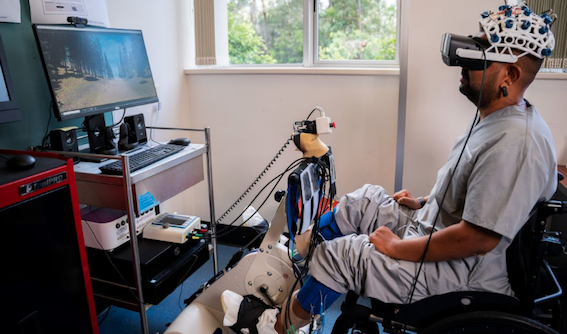
A crucial Griffith University research programme focusing on digitally-enabled rehabilitation technology for spinal cord injury (SCI) has received a $3.8 million funding boost courtesy of the Motor Accident Insurance Commission (MAIC).
Dr Claudio Pizzolato from the School of Health Sciences and Social Work (SHS) and the Griffith Centre for Biomedical and Rehabilitation Engineering (GCORE), with Adjunct Research Fellow Dr Dinesh Palipana and their team will use the funding to further develop the BioSpine research programme which aims to help people with an SCI regain some of their motor and sensory function.
Dr Pizzolato said BioSpine combines the effect of multiple rehabilitation technologies and drug therapy, with the next step involving testing the intervention on volunteers.
Approximately 20,800 Australians are living with SCI and 350-400 people sustain a new SCI each year. Of these injuries 80 per cent are due to traumatic injury and just under half are from motor vehicle accidents.
A clinical study is currently underway assessing the long-term effects of BioSpine’s new type of rehabilitation following a sustained intervention on motor sensory function of people with SCI.
Dr Palipana said the next stage of the BioSpine project would look at integrating the next level of electrical stimulation of the spine.
BioSpine is a cross disciplinary project across Griffith including GCORE, Advanced Design and Prototyping Technologies Institute (ADaPT), SHS, School of Engineering and Built Environment, and Griffith Film School.




